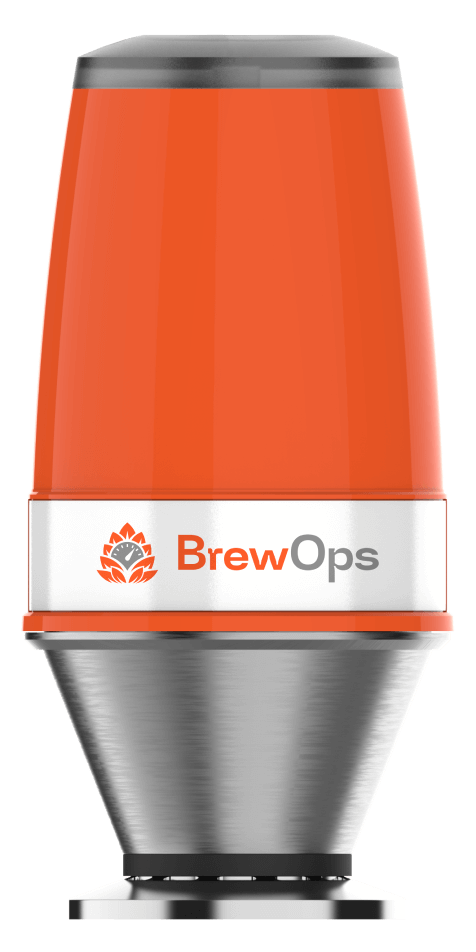Real-Time Monitoring for Better Quality Control
Traditional brewing methods rely on manual sampling and handwritten records, which can introduce inconsistencies and delays in identifying issues. By integrating smart sensors with traditional techniques, brewers can enhance accuracy, streamline processes, and make data-driven decisions in real time. Smart sensors now provide real-time data on critical brewing parameters, allowing brewers to make instant adjustments and maintain optimal conditions.
Key areas where sensors improve quality control:
- Dissolved Oxygen (DO) Monitoring – Oxygen exposure can ruin beer quality. DO sensors ensure low oxygen levels during transfers, reducing oxidation risks.
- Temperature & Fermentation Tracking – Sensors continuously monitor fermentation temperatures, helping brewers maintain yeast health and prevent off-flavors.
- CO₂ and N₂ Management – Automated gas sensors optimize purging processes, preventing excess gas use while ensuring proper tank conditioning.
Reducing Waste and Improving Efficiency
Brewing is resource-intensive, but technology helps reduce waste and optimize resource use. Smart monitoring tools help breweries:
- Optimize Purging – Automated purge sensors track oxygen reduction in Bright Tanks and transfer lines, preventing unnecessary CO₂ or N₂ waste.
- Improve Water & Energy Efficiency – Real-time tracking helps manage water use and optimize cooling and heating systems.
- Detect Leaks & Losses – Flow sensors catch inefficiencies in wort transfer, helping to prevent product loss.
Automation and Data Logging for Consistency
Brewing consistency is crucial for customer satisfaction and brand reputation. With automation and cloud-based tracking, brewers can:
- Set up alerts for critical process deviations, catching potential issues before they impact the final product.
- Automate fermentation tracking, ensuring that every batch follows the same process.
- Review historical data to identify trends and improve future brews.
Why Breweries Should Invest in Smart Brewing Technology
- Save time – Reduce the need for manual checks and free up brewers to focus on innovation.
- Increase consistency – Ensure every batch meets the same high standards.
- Reduce costs – Minimize ingredient waste, optimize gas use, and prevent costly quality issues.
- Improve safety – Automated monitoring reduces the need for manual sampling, improving workplace safety.
The Future of Brewing is Smart
As breweries continue to adopt smart technology, those who leverage real-time monitoring and automation will have a competitive edge. Whether it’s improving oxygen control, automating fermentation tracking, or reducing resource waste, sensors and data-driven tools are shaping the future of brewing.
By embracing technology, brewers can spend less time troubleshooting and more time crafting exceptional beer. Investing in smart brewing solutions today means better beer, greater efficiency, and a stronger bottom line for the future.



